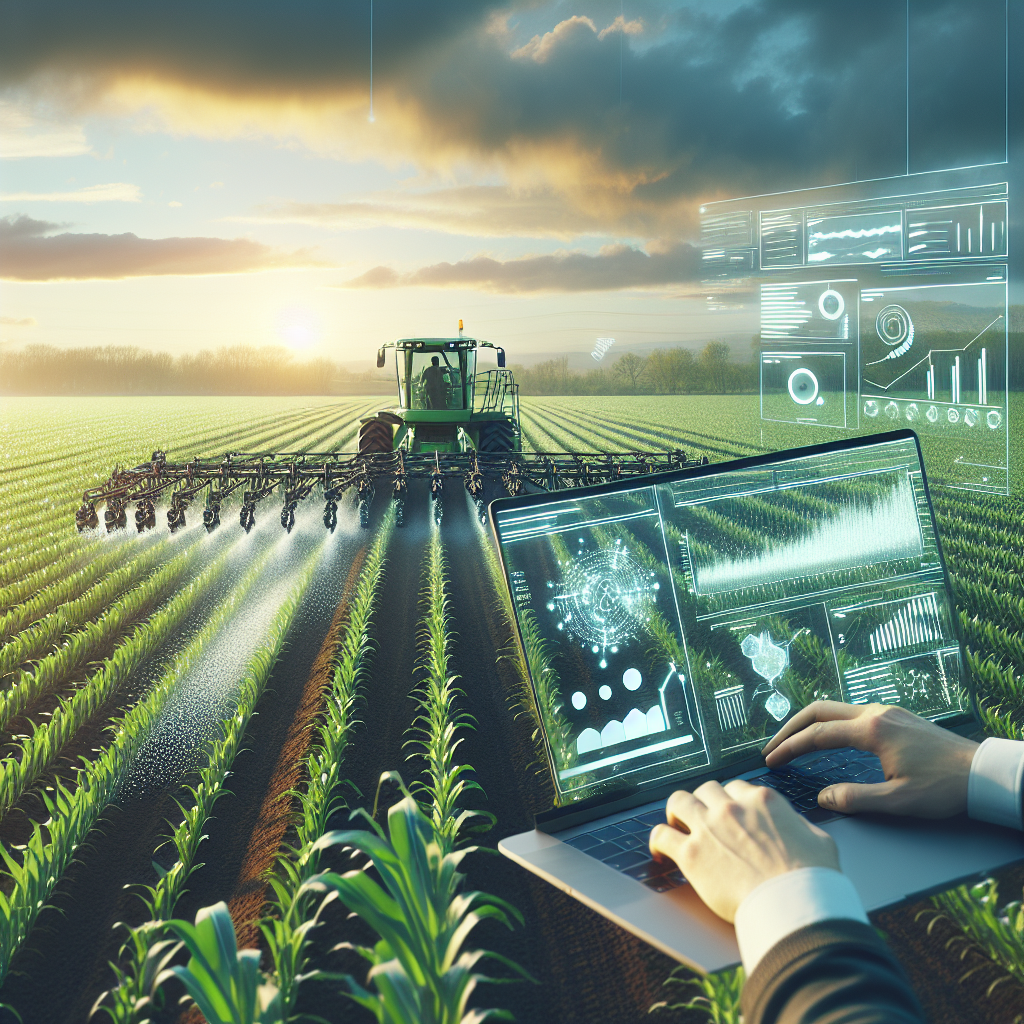AI in Precision Fertilizer Management: Optimizing Nutrient Use Efficiency
In recent years, advancements in artificial intelligence (AI) technology have revolutionized the way we approach precision agriculture. One area where AI is making a significant impact is in precision fertilizer management, helping farmers optimize nutrient use efficiency and improve crop yields. By leveraging AI algorithms, farmers can now make more informed decisions about when, where, and how much fertilizer to apply, leading to more sustainable and environmentally friendly farming practices.
What is Precision Fertilizer Management?
Precision fertilizer management is a farming practice that involves applying fertilizers in a precise and targeted manner, based on the specific needs of each individual plant or crop. By using technology such as GPS, sensors, and AI algorithms, farmers can accurately measure soil nutrient levels, analyze plant health, and determine the optimal amount of fertilizer needed to maximize crop yield.
Traditionally, farmers have applied fertilizers uniformly across their fields, often leading to over-application in some areas and under-application in others. This can result in nutrient runoff, soil degradation, and reduced crop yields. Precision fertilizer management, enabled by AI technology, allows farmers to tailor their fertilizer applications to the specific requirements of each plant, resulting in more efficient nutrient uptake and healthier crops.
How AI is Revolutionizing Precision Fertilizer Management
AI technology is transforming precision fertilizer management in several key ways:
1. Data Analysis: AI algorithms can process vast amounts of data from various sources, such as soil samples, weather forecasts, satellite imagery, and crop sensors. By analyzing this data, AI can provide farmers with real-time insights into soil health, nutrient levels, and crop growth, allowing them to make more informed decisions about fertilizer applications.
2. Predictive Modeling: AI can also be used to develop predictive models that anticipate future crop needs based on historical data and current conditions. By forecasting nutrient requirements, AI can help farmers plan their fertilizer applications more strategically, ensuring that crops receive the right nutrients at the right time.
3. Variable Rate Application: AI technology enables farmers to implement variable rate application strategies, where fertilizers are applied at different rates across a field based on soil nutrient levels and crop requirements. By adjusting fertilizer rates in real-time, farmers can optimize nutrient use efficiency and minimize waste.
4. Remote Monitoring: AI-powered sensors and drones can be used to monitor crop health and nutrient levels from a distance. By collecting data on plant growth, nutrient uptake, and pest infestations, AI can alert farmers to potential issues before they become a problem, allowing for timely intervention and targeted fertilizer applications.
Benefits of AI in Precision Fertilizer Management
The adoption of AI technology in precision fertilizer management offers a range of benefits for farmers and the environment:
1. Increased Crop Yields: By optimizing nutrient use efficiency, AI can help farmers achieve higher crop yields and improve overall productivity. By providing crops with the right nutrients at the right time, farmers can maximize growth and minimize stress, leading to healthier plants and higher yields.
2. Cost Savings: Precision fertilizer management can help farmers reduce input costs by minimizing fertilizer waste and improving resource utilization. By applying fertilizers more efficiently, farmers can save money on inputs while maximizing crop profitability.
3. Environmental Sustainability: AI technology can help farmers reduce their environmental impact by minimizing nutrient runoff, soil erosion, and water pollution. By applying fertilizers more precisely, farmers can protect natural resources and promote sustainable farming practices.
4. Improved Decision-Making: AI algorithms can provide farmers with valuable insights and recommendations for optimizing fertilizer applications. By leveraging AI technology, farmers can make more informed decisions about crop management, leading to better outcomes and increased profitability.
FAQs
Q: How does AI technology determine the optimal amount of fertilizer to apply?
A: AI algorithms analyze various data sources, such as soil samples, weather forecasts, and crop sensors, to calculate the optimal amount of fertilizer needed based on crop requirements and soil nutrient levels. By processing this data in real-time, AI can provide farmers with personalized recommendations for fertilizer applications.
Q: Can AI technology help farmers reduce fertilizer waste and minimize environmental impact?
A: Yes, AI technology enables farmers to apply fertilizers more precisely and efficiently, reducing waste and minimizing environmental impact. By tailoring fertilizer applications to the specific needs of each plant, farmers can optimize nutrient use efficiency and promote sustainable farming practices.
Q: How can farmers adopt AI technology for precision fertilizer management?
A: Farmers can adopt AI technology for precision fertilizer management by investing in sensors, drones, and AI software that can analyze data and provide recommendations for optimizing fertilizer applications. By partnering with technology providers and agricultural experts, farmers can implement AI solutions that meet their specific needs and goals.
Q: What are the key challenges of implementing AI technology in precision fertilizer management?
A: Some key challenges of implementing AI technology in precision fertilizer management include initial costs, data management, and technical expertise. Farmers may need to invest in hardware, software, and training to effectively leverage AI technology for fertilizer management. Additionally, data privacy and security concerns may arise when collecting and analyzing sensitive agricultural data.
In conclusion, AI technology is revolutionizing precision fertilizer management by enabling farmers to optimize nutrient use efficiency, increase crop yields, and promote sustainable farming practices. By leveraging AI algorithms, farmers can make more informed decisions about fertilizer applications, leading to healthier crops, cost savings, and environmental benefits. As AI continues to advance, the future of precision agriculture looks promising, with AI-powered solutions driving innovation and improving productivity in the agriculture industry.

